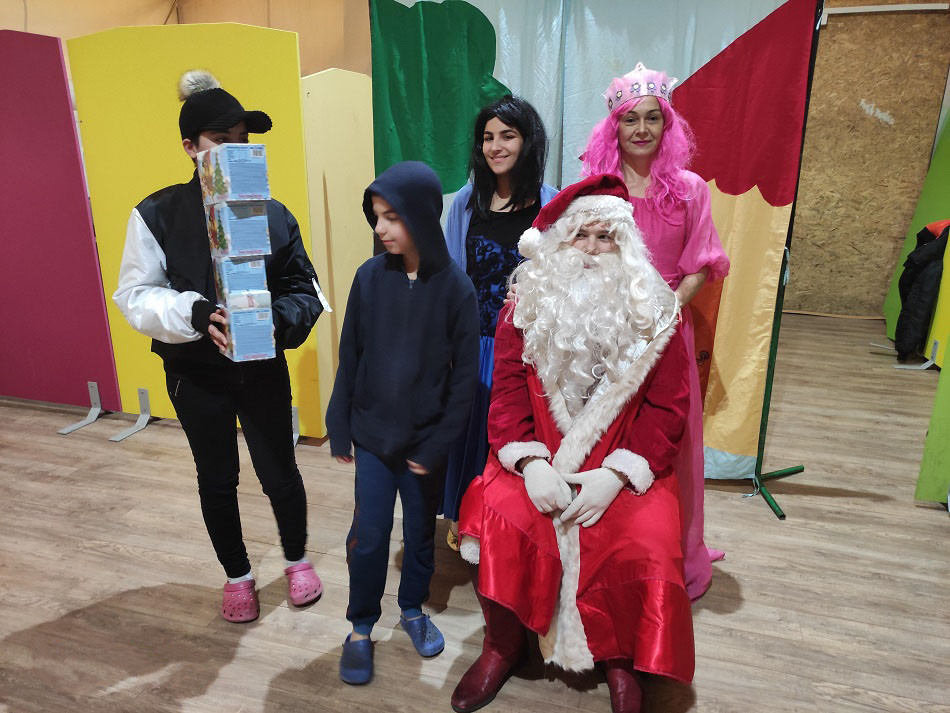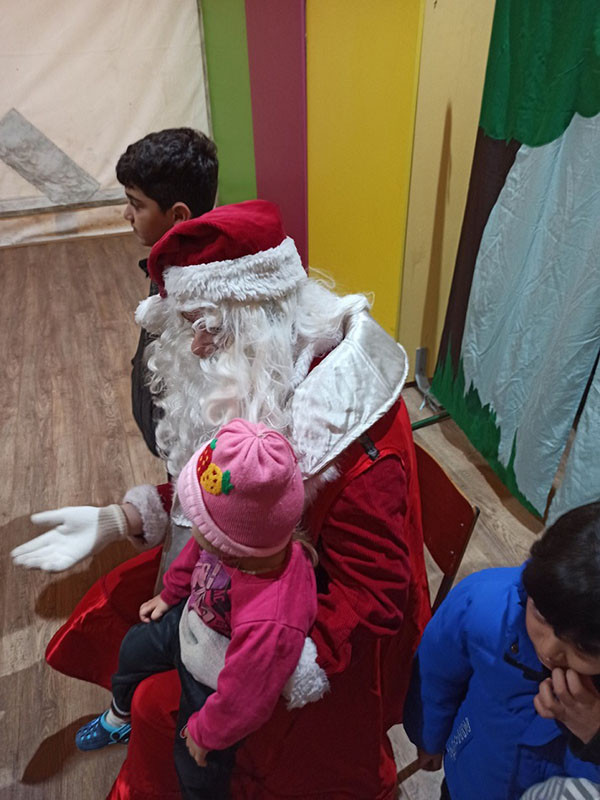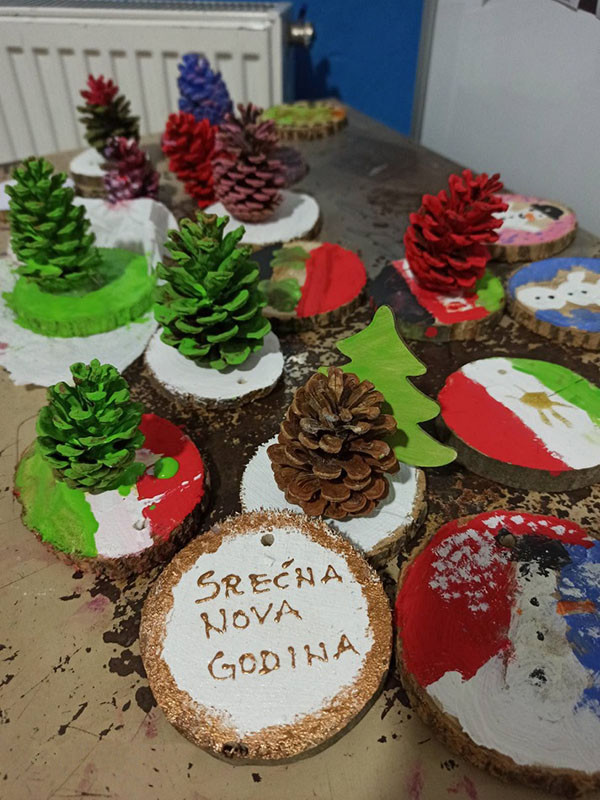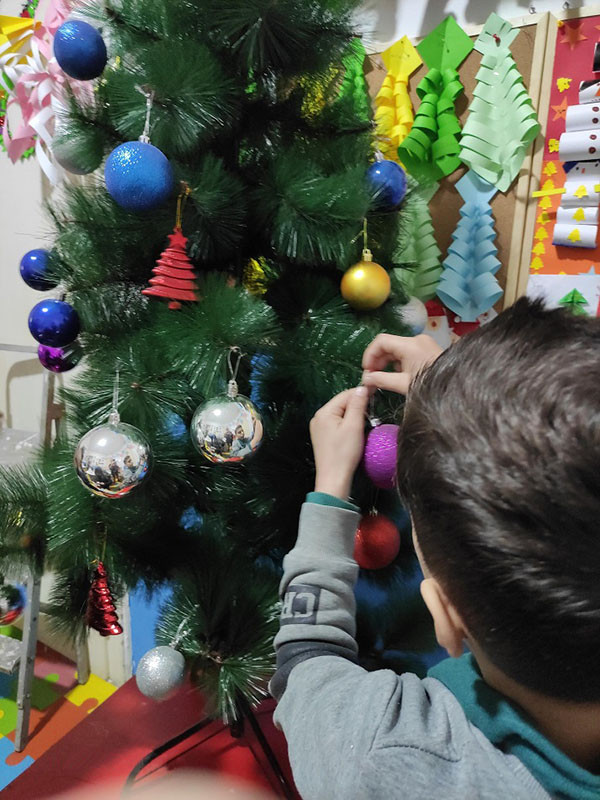Santa Claus, gifts and Holiday joys in reception centers in Šid and Sombor

18. Dec 2020.
On the occasion of the International Day of Migrants, celebrated annually on 18 December, including the pending circle of Holiday festivities, refugee children dwelling in reception centers Šid and Sombor received NewYear gifts.
For this occasion, New Year's performance events were organized together with the theater for children Teatrilo from Novi Sad. In the reception center in Šid, the play "Cinderella" was highlighted by the “Santa Claus”, who gave the children New Year's packages at the end of the play. The play "New Year's colors" was held for children in the reception center in Sombor, and after the performance, the distribution of gift packages followed.
During the previous weeks, our expert associates engaged in the organization of workshops for children in the mentioned reception centers focused their activities on making New Year's decorations, in order to be ready to welcome New Year's joys with children.
According to UN data, in 2019, the total number of migrants worldwide exceeded 272 million. The International Convention on the Protection of the Rights of Migrant Workers and Members of Their Families was adopted by the UN General Assembly in December 1990. Ten years later, December 18 was declared International Migrants' Day. After 5 years since the beginning of the migrant crisis, and also because of a large number of migrants moving through our country, we still look after the needs and care for importance of supporting this vulnerable group whose human rights are often violated or discriminated against. Given that the target groups of EHO include all vulnerable and marginalized groups whose human rights have been violated and / or discriminated in any way, the Ecumenical Humanitarian Organization will continue to support all these groups through their work in cooperation with all its partners.
The activities organized in the reception centers in Šid and Sombor are part of the project: "Empowerment of migrant women and children" supported by the Evangelical Lutheran Church in America (ELCA) and realized with the support from Commissariat for refugees and migrations of the Republic of Serbia (KIRS).


